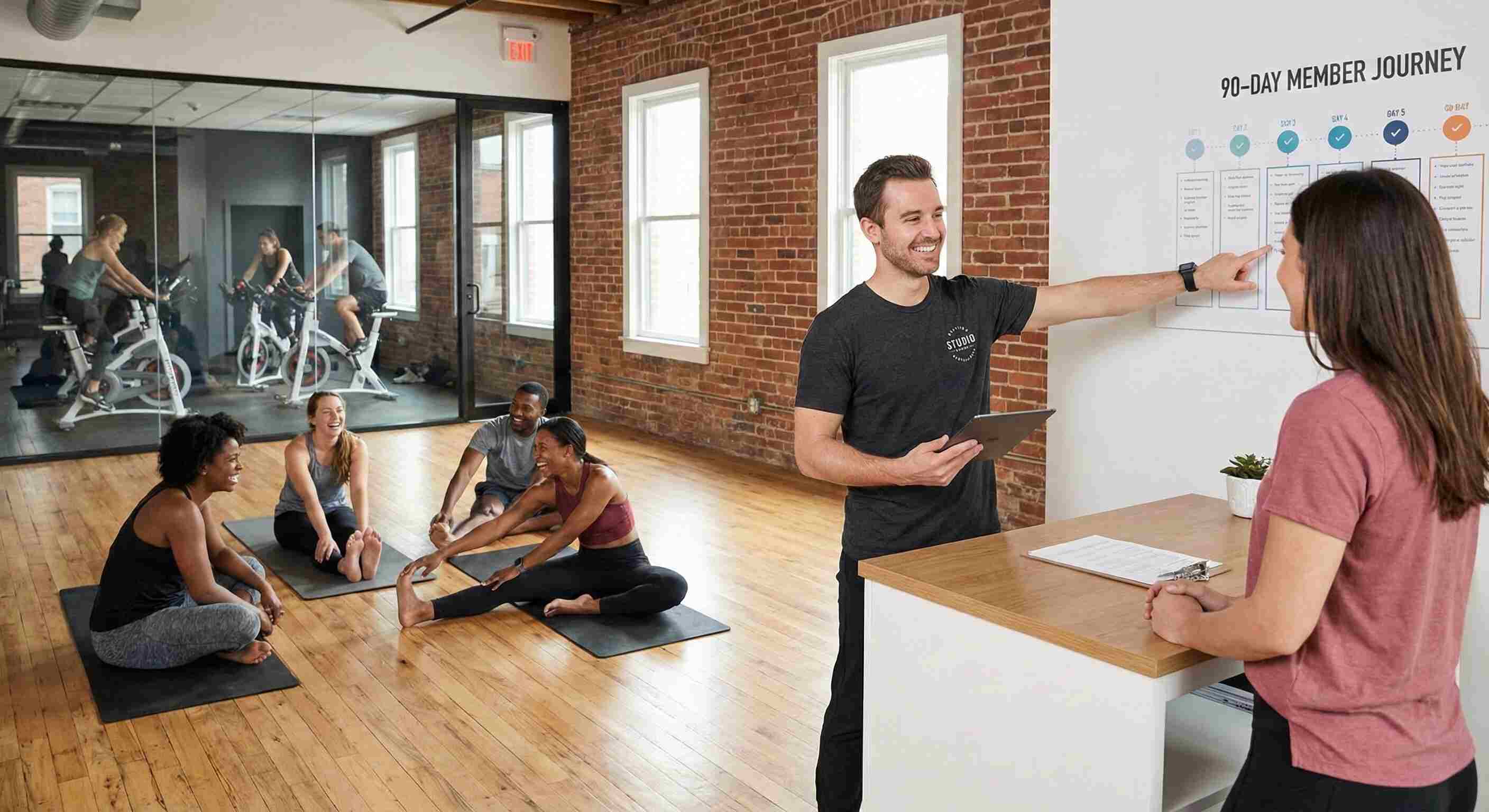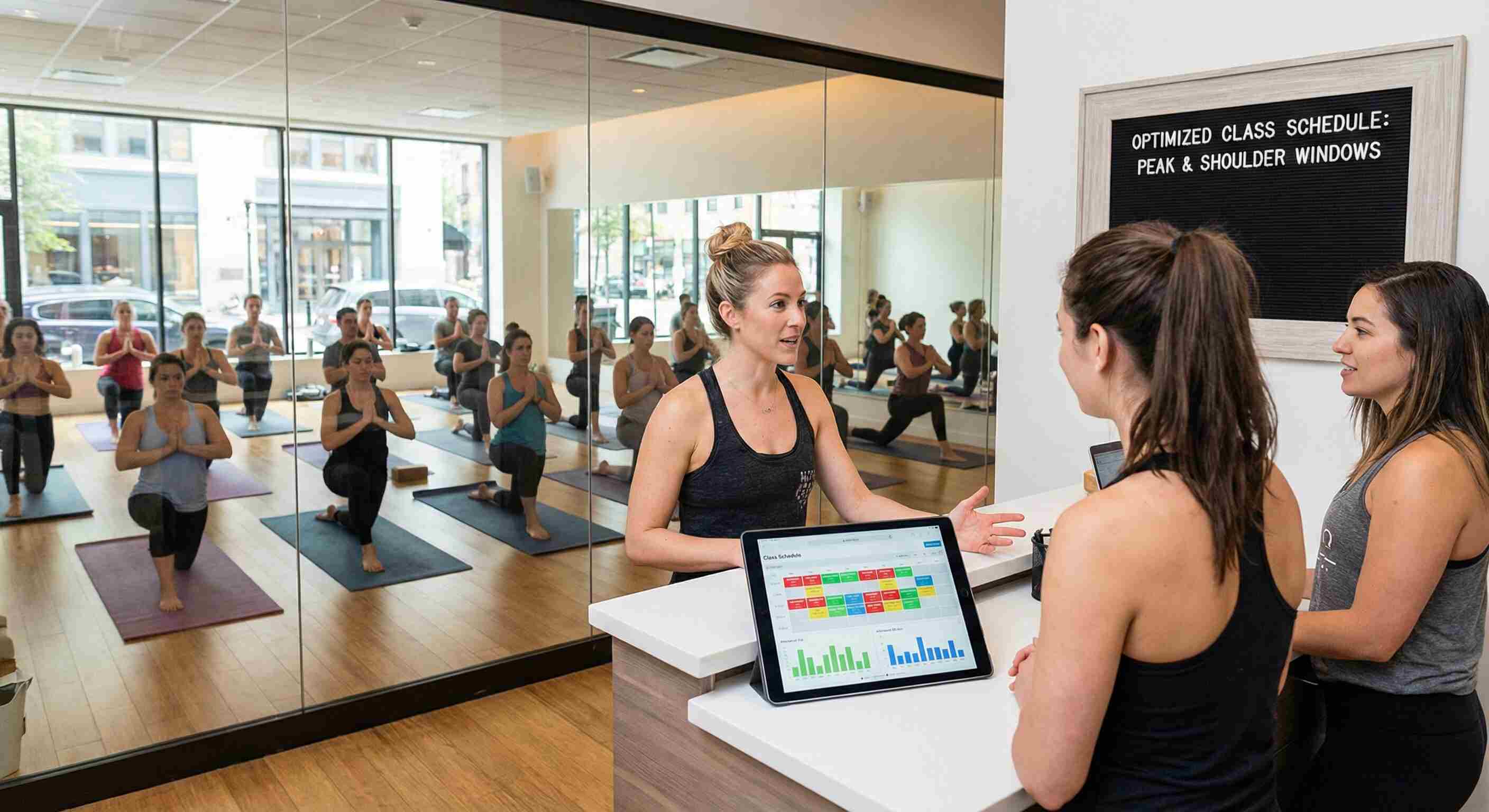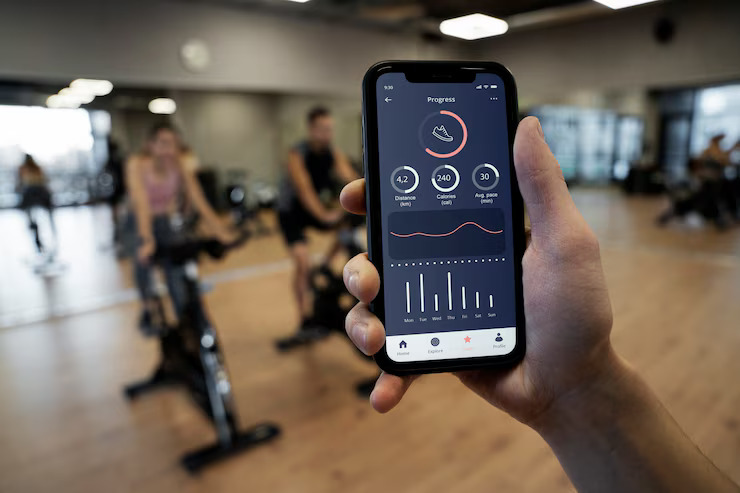
'T is the season for business-to-business partnerships. There are countless benefits and ways to make the most of business relationships if you're willing to reach out. From vendors at your holiday party to a like-minded service provider to offer retention-boosting ancillary services to your clients, let's look into why it may be time to try a B2B partnership with your fitness business.
First, What is it?
A business partnership is a mutually beneficial collaboration between your gym and any other organization. Reasons for joining forces include:
● Increasing your reach: access to two businesses' customer lists is almost always better than one (as long as the other customer base is interested in what you're offering).
● Splitting costs: If you partner together on an event or service, you can split the cost while still reaching more prospects.
● Expanding your offerings: You have lobby space, and a potential partner has a product they're looking to market. Now your customers get access to a good or service they're interested in without any extra work on your part.
● Sharing expertise: Partnering with another business owner who specializes in an area outside your own is a great way to improve your business acumen and offer your clients more perks.
● Broadening your brand recognition: similar to increasing your reach, by co-marketing each other on each company's social media or brick-and-mortar, you expand your brand awareness. Next time someone sees your logo, they'll already have a foundation for who you are and what you do.
Step One: Identify Potential Partners:
How do you know who to partner with? No two businesses will have the exact same goals in mind, but there are considerations you'll want to remember to boost your chances of reciprocal collaboration. Start by listing all of the services, products, events, or long-term partner businesses you would love to add to your gym. Try not to limit yourself during this ideating step- the more potential leads, the better.
Next to each business name or service type, mark whether the partner is a long-term alliance or a specific event collaboration. A long-term partner is a sister business that would refer customers to you while you recommend them to your clients. Common successful partnerships for a gym or fitness studio could be:
● Nutritionist
● Naturopath or general practice doctor for referrals
● Chiropractor
● Physical therapist
● Spa or massage therapist
● Smoothie/ coffee shop or juice bar
● Meal delivery service
Short-term collaborations are often event focused. Choose a business offering a product or service that your clients would enjoy to improve member experience. Examples include:
● Asking a juice bar, coffee shop, or meal service to provide (or sell) food at an in-studio event.
● Partnering with a wine bar for a "barre at the bar" pop-up class.
● Bringing local makers into your workshop or open house.
● Inviting a local boutique or athleisure wear company for a clothing pop-up after class one Saturday morning.
fitDEGREE can support your Studio Fitness
Step Two: Fine Tune Your Prospects:
If you listed broad service or product descriptions instead of specific businesses in step two, it's time to research. Let's say you were looking for a wellness coach to offer consultations to your members as a bonus. Research all of the wellness coaches in your area and comb through their websites. You're looking for hints about the owner's personality, the business culture, and who they serve as their target client. You may even want to look up their reviews if you don't have experience with their business. Your goal is to ascertain whether your businesses would be a good fit.
Step Three: How to Pitch a Potential Partnership:
Once you choose your ideal partners, it's time to ask. For a collaboration to work, it has to be mutually beneficial. Rarely do companies offer up marketing space or email lists out of the kindness of their hearts- you'll need to pitch what you bring to the table.
Before approaching your future partner, list why they should want to work with you. Sure, you're the one asking, but you have unique advantages in your business, too. Your job is to present the "why" benefits confidently and succinctly. Going back to our nutritionist example, it might sound something like this:
"Hi Partner Business Owner, My name is Sara, and I own __X fitness studio. I've been searching for the perfect __nutritionist__ to partner with, and I found your business. Your reviews are amazing, and I love how you _Insert specific findings from your research_. My studio specializes in __your business's specific specialties that make your business attractive__. We're looking to partner with a nutritionist to help our members reach their health and fitness goals holistically. Many of our members are actively looking for a nutritionist to teach them how to plan healthy meals, and I would love to discuss how our businesses can support each other. If you're interested, please let me know, and we'll dive into the details over coffee- my treat!"
Step Four: Make it Official.
You've pitched your partnership, and they agreed! Now what? Many partner agreements go south due toa mismatch of expectations that weren't ironed out at the beginning. Before you shake hands and dive in, set yourself up for success. What are the specific terms of your partnership? Consider:
● Marketing: If you agree to cross-promote, what are the specifics regarding frequency and type of marketing?
● Responsibility: Who is taking ownership of the risk, if there is one? If it's an external event, do both parties have sufficient insurance?
● Who is in charge of what, specifically, to ensure the partnership is a success?
● What happens if there is a problem or disagreement?
● How are you splitting costs, if applicable? Is it50/50? What is the budget?
● Will one party be compensating the other? If so, what are the details?
● What are both partners expecting? What would create a best-case partnership agreement for each business?
● What is a deal breaker for each business owner?
Once you've worked through your specifics, write up a contract and give each partner a copy. It may seem like overkill, especially for a short-term partnership, but prep work at the beginning goes a long way toward ensuring a successful collaboration that benefits everyone.
Step Five: Repeat!
The first one is the hardest. You made a list of potential partners in step one, so practice reaching out until pitching to other small businesses is second nature. Your members, studio, and workload will all benefit from all your new mutually beneficial collaborations.















.jpg)












.jpg)










.jpg)










































.jpg)



























